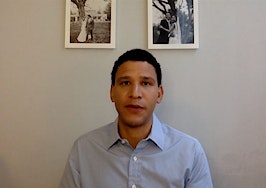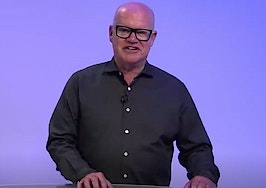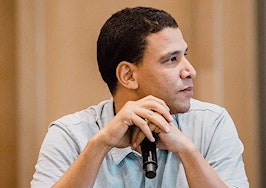This article was last updated on Feb. 16, 2022.
It’s been almost two years since the murders of Ahmaud Arbery, Breonna Taylor and George Floyd, three Black Americans who had their lives cut tragically short at the hands of racists. Their deaths sparked a nationwide reckoning, which made its way to the real estate industry.
Throughout the summer of 2020, real estate’s movers and shakers gave impassioned statements, expressing their disappointment, sympathy and the need for change. Keller Williams founder Gary Keller used his Connect Now appearance in June 2020 to call his agents — and himself — to task in combating racism and discrimination.
“I realized that from this moment on, I’m forever changed by these events, and I have to be anti-discrimination and I have to be anti-racism,” Keller said. “I can’t just be ‘not it’ anymore.”
Several other real estate companies, including Coldwell Banker, Keller Williams and HomeLight, launched diversity and inclusion programs and even Inman strengthened its commitment to highlighting more real estate agents, brokers and experts of color. However, as most people are wont to do when the passion of the moment passes, they slowly slide back into the regular rhythm of life.
But, it’s never too late to re-energize your commitment to becoming an antiracist, which requires everyone to address their implicit biases, assess their privilege and find the courage not only to say what needs to be done but actually do it. It’s never too late to revisit a book, movie or podcast that opened your eyes two years ago or expose yourself to a new voice that will challenge you to continue the work of creating a more equitable world.
Here’s a list of 26 books, documentaries, podcasts, digital media and experts (six of them are new!) that will be the starting point for what should be a lifelong journey to becoming an antiracist.
Non-Fiction and Fiction Books
 “How to Be an Antiracist” is historian and Antiracist Research & Policy Center founder Ibram X. Kendi’s third book delving into America’s relationship with race and racism.
“How to Be an Antiracist” is historian and Antiracist Research & Policy Center founder Ibram X. Kendi’s third book delving into America’s relationship with race and racism.
Unlike his first book “Stamped from the Beginning: The Definitive History of Racist Ideas in America,” which focuses on providing a historical overview of racist thoughts and policies, Kendi uses “How to Be an Antiracist” to provide a personal and gut-wrenching view of how racism has warped our thinking and what we can do about it.
Available in print, audio and digital versions.
 Race and racism isn’t an easy subject for anyone to talk about; however, white Americans seem to have an especially hard time discussing and acknowledging their part in upholding systematic racism — whether they mean to or not.
Race and racism isn’t an easy subject for anyone to talk about; however, white Americans seem to have an especially hard time discussing and acknowledging their part in upholding systematic racism — whether they mean to or not.
In “White Fragility: Why It’s So Hard for White People to Talk about Racism,” antiracist educator Robin DiAngelo teaches white people how to examine their privilege and engage in honest, transformative cross-racial conversations without becoming defensive, aggressive or passive.
Available in print, audio and digital versions.
 When we think of racism, we often focus on the most insidious examples — slavery, lynchings, segregation and other state-sanctioned violence against people of color. However, we tend to gloss over seemingly harmless actions, such as asking a Black woman if you can touch her hair or assuming your Chinese coworker must know how to fix your computer problems.
When we think of racism, we often focus on the most insidious examples — slavery, lynchings, segregation and other state-sanctioned violence against people of color. However, we tend to gloss over seemingly harmless actions, such as asking a Black woman if you can touch her hair or assuming your Chinese coworker must know how to fix your computer problems.
In “So You Want to Talk about Race,” Ijeoma Oluo helps readers of all races navigate difficult, everyday conversations about white privilege, microaggressions, stereotyping, affirmative action and much more.
Available in print and audio versions.
 The Atlantic staff writer, educator, podcaster and poet Clint Smith III’s first nonfiction work “How the Word is Passed” quickly climbed to the top of the most prestigious book lists in 2021, and for good reason. The New Orleans native uses the history behind some of the nation’s most recognizable monuments and landmarks — such as Thomas Jefferson’s Monticello — to expose how slavery has marred the Black community and our country as a whole, as the vestiges of slavery live on through inequitable justice, educational, housing and economic systems.
The Atlantic staff writer, educator, podcaster and poet Clint Smith III’s first nonfiction work “How the Word is Passed” quickly climbed to the top of the most prestigious book lists in 2021, and for good reason. The New Orleans native uses the history behind some of the nation’s most recognizable monuments and landmarks — such as Thomas Jefferson’s Monticello — to expose how slavery has marred the Black community and our country as a whole, as the vestiges of slavery live on through inequitable justice, educational, housing and economic systems.
Available in print and audio versions.
 Although non-fiction books are invaluable resources in your antiracism journey, fictional tales are just as illuminating and challenging.
Although non-fiction books are invaluable resources in your antiracism journey, fictional tales are just as illuminating and challenging.
Ralph Ellison’s 1952 classic “Invisible Man” follows an unnamed young Black man’s literal journey and ideological transformation as he moves from a small, Southern town to the bustling streets of Harlem. This story touches at the experience of many Black people — being hypervisible yet invisible at the same time.
Available in print, audio and digital versions.
 Another literary classic is Lorraine Hansberry’s “A Raisin in the Sun,” a play that uncovers how race and class intersect in the lives of a poor, Black family living in Chicago’s Southside. After the family’s patriarch dies, the bereaved are left with the important decision of how to spend a $10,000 insurance payout.
Another literary classic is Lorraine Hansberry’s “A Raisin in the Sun,” a play that uncovers how race and class intersect in the lives of a poor, Black family living in Chicago’s Southside. After the family’s patriarch dies, the bereaved are left with the important decision of how to spend a $10,000 insurance payout.
Should they invest in their dreams or focus on surviving today? Do wealth and education erase the effects of racism? See how this family decides.
Available in print.
 Brit Bennett’s “The Vanishing Half” is a story about twin sisters in rural Louisiana who have the ability to pass — the term used for Black people who are able to live as white due to their looks. One sister decides to continue living her life as a Black woman and faces the pain and consequences of living in a world that doesn’t respect her gender, race or class. Meanwhile her twin, after getting a taste of what living as a white person affords, decides to leave her family behind at the expense of her mind and soul.
Brit Bennett’s “The Vanishing Half” is a story about twin sisters in rural Louisiana who have the ability to pass — the term used for Black people who are able to live as white due to their looks. One sister decides to continue living her life as a Black woman and faces the pain and consequences of living in a world that doesn’t respect her gender, race or class. Meanwhile her twin, after getting a taste of what living as a white person affords, decides to leave her family behind at the expense of her mind and soul.
More authors to research: Chimamanda Adichie, Michelle Alexander, Maya Angelou, James Baldwin, Ta-Nehisi Coates, Alice Cooper, Brittney Cooper, Angela Davis, Michael Eric Dyson, Nikki Giovanni, Alex Haley, Langston Hughes, Saeed Jones, Zora Neale Hurston, Toni Morrison, and Jesymn Ward.
Movies and Documentaries
 Henry Louis Gates, Jr. is one of America’s foremost literary critics, historians and documentarians.
Henry Louis Gates, Jr. is one of America’s foremost literary critics, historians and documentarians.
Gates, who is the director of Harvard University’s Hutchins Center for African and African American Research, has written 21 books and produced 19 documentaries about Black history in the Americas, Europe and Africa.
If you’re new to Gates’s work, start with his 2013 PBS documentary “The African Americans: Many Rivers to Cross.” The six-part documentary traces Black American history from 1619, the official beginning of the American slave trade, to 2012, the beginning of President Barack Obama’s second term.
Watch on PBS or Amazon Prime.
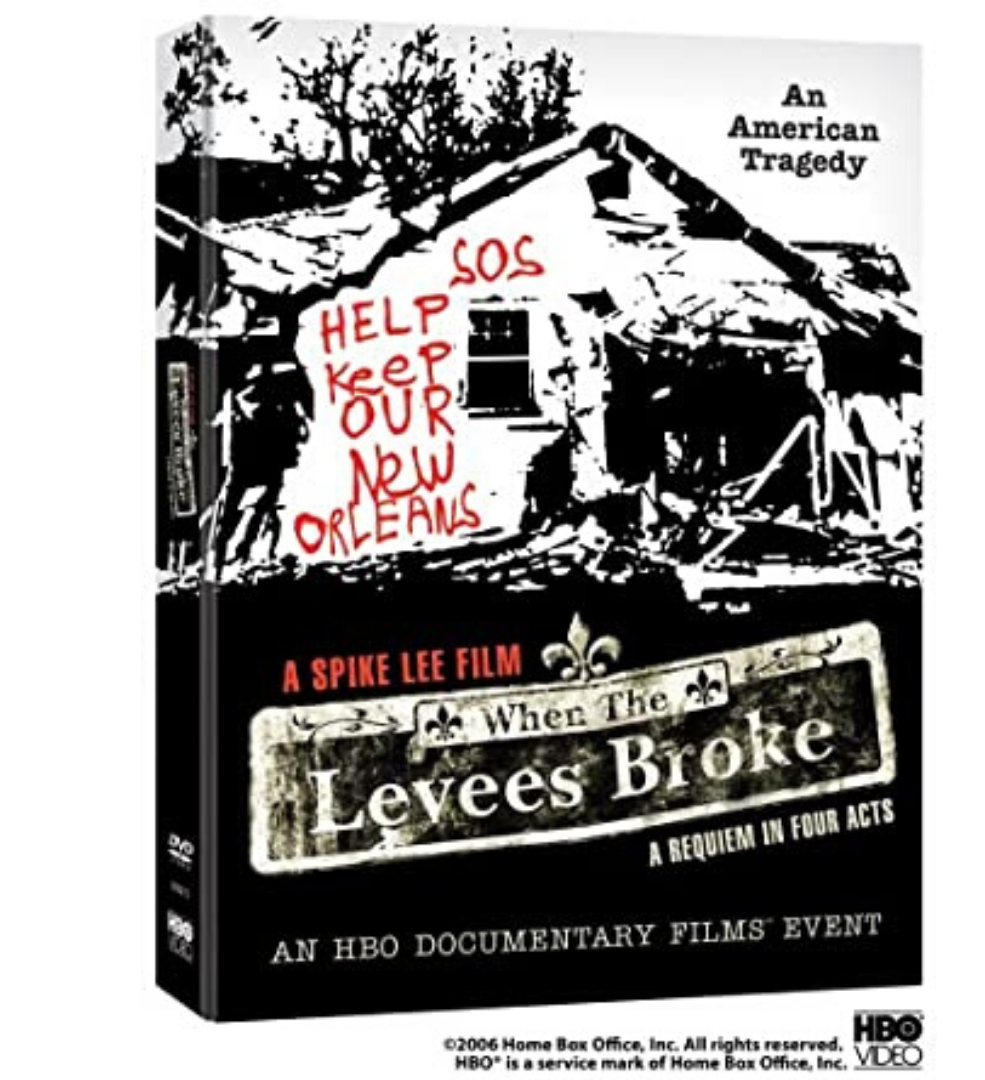 Although Spike Lee is known for his fictional films including “School Daze” and “Do The Right Thing,” he’s also a skilled documentarian.
Although Spike Lee is known for his fictional films including “School Daze” and “Do The Right Thing,” he’s also a skilled documentarian.
Five years after Hurricane Katrina, Lee released “When the Levees Broke” an in-depth and brutally honest look at how race and class exacerbated one of America’s worst natural disasters.
“When the Levees Broke” includes commentary from politicians, historians, sociologists, urban planners and everyday New Orleanians who peel back the layers of how systematic racism and housing discrimination still impact us today.
Purchase on Amazon Prime.
 Over the past week, Americans have taken a hard look at policing and the criminal justice system. For those who need an introduction or refresher on racism and how it led to a judicial system that disproportionately punishes the Black and poor, watch Ava DuVernay’s Netflix documentary, “13TH.”
Over the past week, Americans have taken a hard look at policing and the criminal justice system. For those who need an introduction or refresher on racism and how it led to a judicial system that disproportionately punishes the Black and poor, watch Ava DuVernay’s Netflix documentary, “13TH.”
For nearly two hours, DuVernay explores a clause in the 13th Amendment that keeps slavery alive as a form of criminal punishment. With insight from historians, legal experts, activists and politicians, DuVernay explains how laws were written to place Black Americans back into slavery through mass incarceration.
Watch for free on YouTube.
 “What Happened, Miss Simone?” is a 2015 documentary about Nina Simone, a famed singer and pianist who used her music to challenge the racial status quo of the 1960s and 1970s and encourage Black Americans to celebrate their identity.
“What Happened, Miss Simone?” is a 2015 documentary about Nina Simone, a famed singer and pianist who used her music to challenge the racial status quo of the 1960s and 1970s and encourage Black Americans to celebrate their identity.
Although Simone garnered the love and respect of people worldwide, in private she suffered from mental health issues as she slowly cracked under the pressure of being a Black woman who dared. Although Simone had already passed by the time the documentary debuted, interviews with family and friends provide a gut-wrenching take on how racism and sexism weigh everyone down.
 Keeping in line with the book recommendations, I’m going to list three fictional films that offer insight into the beauty and struggle of being Black in America. Oscar-winner Barry Jenkins’ second large-scale film, “If Beale Street Could Talk,” is an adaption of James Baldwin’s book of the same name.
Keeping in line with the book recommendations, I’m going to list three fictional films that offer insight into the beauty and struggle of being Black in America. Oscar-winner Barry Jenkins’ second large-scale film, “If Beale Street Could Talk,” is an adaption of James Baldwin’s book of the same name.
“If Beale Street Could Talk” is a story about Tish and Fonny — two Black teens navigating life, love, and race in early 1970s Harlem. Just as Tish and Fonny’s love story begins, it’s upended by an encounter that changes their lives forever.
Purchase the book here and watch it on Hulu.
 “The Color Purple” follows the stories of four Black women living in early twentieth-century rural Georgia. The story centers around Celie, a teen girl who is navigating self-love, personal freedom, religion, race and sexuality while being trapped in an abusive marriage to a man known as “Mister.”
“The Color Purple” follows the stories of four Black women living in early twentieth-century rural Georgia. The story centers around Celie, a teen girl who is navigating self-love, personal freedom, religion, race and sexuality while being trapped in an abusive marriage to a man known as “Mister.”
The story also follows her sister, Nettie, who builds a life in Africa, her iron-willed sister-in-law Sofia, and Shug Avery, the woman who gives Celie the courage to live on her own terms.
The book broke boundaries in its depiction of Black women and Black queer life and earned Alice Walker a Pulitzer Prize. However, Steven Spielberg’s 1985 adaptation was ignored by mainstream media for nearly 30 years, until it reemerged on Broadway in 2015.
Purchase the book here and rent it on Amazon Prime.
 Comedian Jordan Peele took the world by storm in 2017 with “Get Out,” his directorial debut. “Get Out” follows Chris, who spends the weekend with his white girlfriend Rose’s family on a lavish country estate. As the weekend progresses, Chris’s fears about being “the only one in the room” yield a horrifying result as he fights for his life.
Comedian Jordan Peele took the world by storm in 2017 with “Get Out,” his directorial debut. “Get Out” follows Chris, who spends the weekend with his white girlfriend Rose’s family on a lavish country estate. As the weekend progresses, Chris’s fears about being “the only one in the room” yield a horrifying result as he fights for his life.
Although the Hitchcock-worthy scenes captured audiences’ imaginations, the real magic of the film lies in its ability to cleverly expose how racism not only teaches people how to hate others, but also hate themselves.
Watch it here.
Check out films by: Ryan Coogler, Julie Dash, Yance Ford, Dream Hampton, Kasi Lemmons, Oscar Micheaux, Raoul Peck, Jordan Peele, Gina Prince-Bythewood, Issa Rae, Dee Rees, Boots Riley, John Singleton, and Robert Townsend.
Podcasts and Digital Media
 For four years, Gene Demby and Shereen Marisol Meraji have led honest, thought-provoking, and nuanced conversations about race and how it touches every part of our society for the NPR podcast Code Switch.
For four years, Gene Demby and Shereen Marisol Meraji have led honest, thought-provoking, and nuanced conversations about race and how it touches every part of our society for the NPR podcast Code Switch.
Demby and Meraji call upon historians, activists, sociologists, leaders and everyday people to provide reflections on America’s past, insight into America’s present, and ideas for the future.
The dynamic duo touches on topics such as slavery, voter suppression, immigration, climate change and mass incarceration from a viewpoint that considers how race and identity influence outcomes and experiences.
Take the time to listen from the beginning, but if you’d like insight on current events, start here. Search for NPR’s Code Switch wherever podcasts are found.
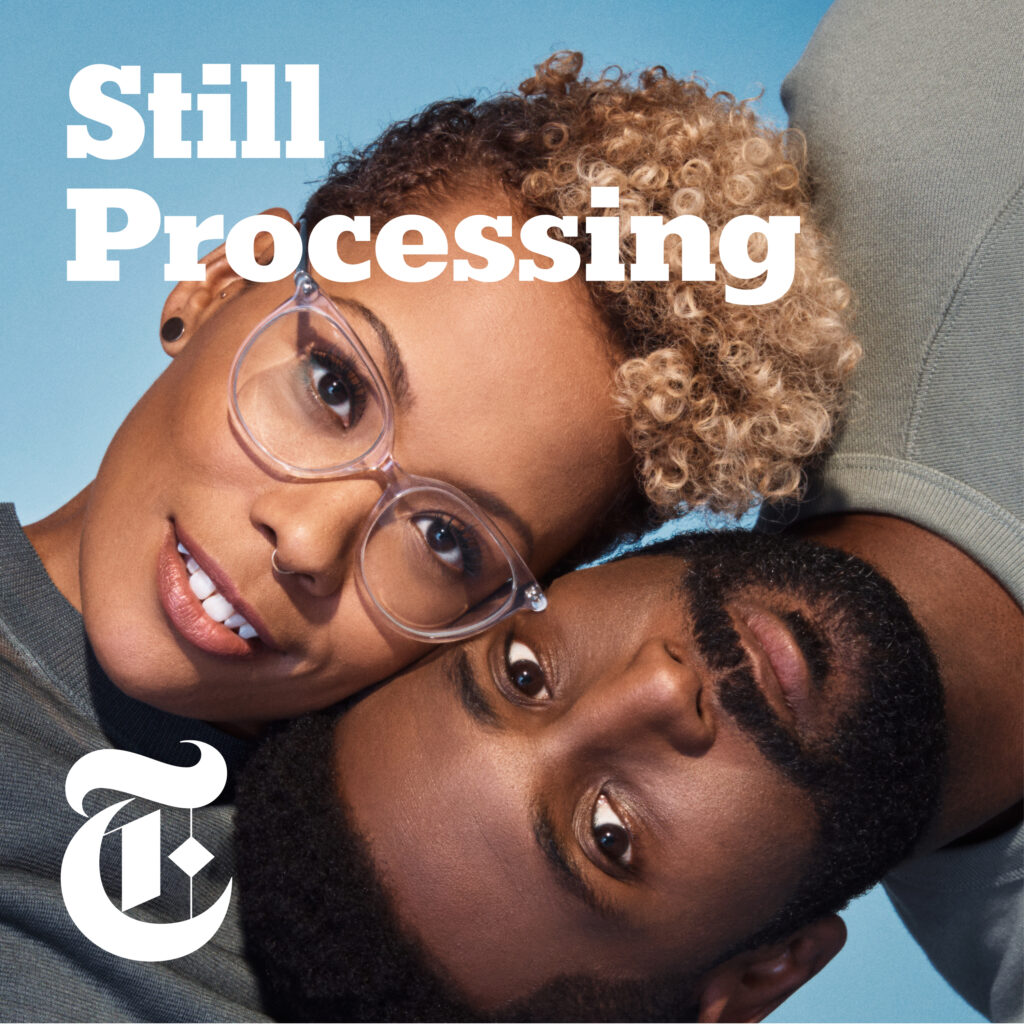 Still Processing is hosted by Wesley Morris and Jenna Wortham, two Black queer culture writers for The New York Times.
Still Processing is hosted by Wesley Morris and Jenna Wortham, two Black queer culture writers for The New York Times.
Still Processing covers many of the same topics as NPR’s Code Switch, but Morris and Wortham primarily focus on how pop culture, media and technology impact how we understand race and identity.
The duo also takes a more intimate approach that hinges on their personal experiences and expertise to push listeners of all races to reconsider how they understand and react to what’s happening around them.
You can begin with the 2020 season here and search for Still Processing wherever podcasts are found.
 For those who want an interactive and personal look at the history of the American slave trade, look no further than The New York Times Magazine‘s “The 1619 Project.”
For those who want an interactive and personal look at the history of the American slave trade, look no further than The New York Times Magazine‘s “The 1619 Project.”
Led by Pulitzer Prize-winning reporter Nikole Hannah Jones, “The 1619 Project” takes a deep dive into the evolution of systematic racism beginning in 1619 — the year the first enslaved Africans were forced onto America’s shores.
“The 1619 Project” melds history with personal essays, poems, photographs and audio from Black Americans who are grappling with what it means to live and thrive in a country built on your oppression.
Since it went to print in August 2019, The NYT Magazine team has included additional resources, such as reader responses, interviews and presentations from Nikole Hannah Jones, a behind-the-scenes look at production, and teaching resources.
 Created by Nigerian American millennial Ashley Akunna, “The Grapevine” is a YouTube-based show that highlights the concerns, struggles and varying opinions of young Black Americans from varying cultures, nationalities, backgrounds and political beliefs.
Created by Nigerian American millennial Ashley Akunna, “The Grapevine” is a YouTube-based show that highlights the concerns, struggles and varying opinions of young Black Americans from varying cultures, nationalities, backgrounds and political beliefs.
“The Grapevine” dives headfirst into topics such as prison reform, the legalization of marijuana, cultural appreciation versus appropriation, the 2020 election season, racism and much more. The hour-long episodes aren’t for the faint of heart, as they challenge every listener to take a deep look at how they uphold injustice in all of its forms.
“The Grapevine’s” May 2019 episode about prison reform and May 2020 episode about police brutality are timely, excellent episodes to start with.

Jouelzy
Jouelzy first stepped onto the YouTube scene in 2014 with content surrounding beauty, style and technology. However, she quickly found her niche in recording pop culture and political analyses that touch on the intersections of race, gender, sexuality, class and religion.
Over the past year, Jouelzy has expanded her platform to include the Smart Brown Girl Book Club, where she offers two reading tracks with syllabi. The General Track is for those who are new to Black literature and want to gain insight from easy-to-read fiction and non-fiction works. Meanwhile, The Complex Theory track is for those who want to dive into academic works written by Black women.
There’s more than enough content to watch, but Jouelzy’s videos about the Black community’s relationship with the Democratic Party and police reform are good places to start.

Justin James
Justin James, a.k.a. The King of Reads, is a Black queer YouTuber who’s become known for his witty and insightful pop culture videos. Although James provides plenty of laughs and drags (a slang term for admonishing someone for their wrongdoings), he’s taken on the important work of talking about the impact HIV and AIDS have had on the Black community and dispelling dangerous stereotypes that demonize HIV positive people.
Watch James’ three-part YouTube miniseries featuring queer minority icons and allies Byron Jamal, Marnina Miller, George M. Johnson, Dominique Jackson, and Kia LaBeija, and learn how racism, sexism and classism play into outcomes for BIPOC (Black, Indigenous, People of Color) surviving the virus.
Watch and listen to: For Harriet, The Nod, Strong Black Leads, Black Men Can’t Jump [In Hollywood], Pod Save The People, It’s Been A Minute With Sam Sanders, Blackbelt Voices, Ear Hustle, Intersectionality Matters! With Kimberlé Crenshaw, The Black History Buff Podcast and Floodlines.
Experts to follow

Brittany Packnett Cunningham
An activist, educator and writer, Brittany Packnett Cunningham gained national recognition in 2014 while protesting the murder of unarmed Ferguson, Missouri teen, Mike Brown.
Since then, Packnett Cunningham has become a Harvard Institute of Politics fellow, well-known podcaster, MSNBC contributor and trusted source on all things social justice.
Follow her on Twitter @MsPackyetti.

Jane Elliott
For more than half a century, educator and diversity trainer Jane Elliott has been challenging white Americans to acknowledge, accept, and change their part in upholding systemic racism. Elliott is most known for her 1968 “Blue Eyes/Brown Eyes Exercise” that used eye color as a proxy for teaching children about race and discrimination.
Despite the backlash she received from parents and teachers, Elliott kept doing the experiment with her students for 20 years until she retired and took her lessons on the road.
Elliott isn’t on social media, but you can access her work on janeelliott.com.

Michael Eric Dyson
Michael Eric Dyson is an author, speaker, minister and Professor of Sociology at Georgetown University.
Over the past 27 years, Dyson has written 19 books about Black culture and civil rights, with four works being dedicated to helping Black and white Americans thoughtfully, honestly and intelligently talk about race.
In addition to reading Dyson’s written works, you can watch him on MSNBC, CNN and Real Time with Bill Maher, where he’s a regular political analyst and commentator.
Follow him on Twitter @MichaelEDyson.

Tim Wise
For more than two decades, activist and author Tim Wise has been lecturing schools, universities, businesses and government, law and medical professionals about bias, prejudice, systemic racism and what can be done to fix it.
Wise’s ten books address race, class and politics and are often directly addressed to white Americans who have never talked about or who struggle to talk about racism.
Wise is a regular on CNN, MSNBC and NPR, and you can view some of his research on race and racism at the National Museum of African American History and Culture in Washington D.C.
Follow him on Twitter @timjacobwise.

Dr. Eve Ewing
Dr. Eve Ewing is a Chicago-based sociologist, educator, author, poet and activist. Ewing has won awards for numerous fiction, non-fiction and academic works that focus on race and racism in Chicago’s Southside.
Her latest non-fiction work, “Ghosts in the Schoolyard: Racism and School Closings on Chicago’s South Side,” is a deep dive into the connection between race and class when cities decide which students are worthy of resources.
Dr. Ewing has also broken barriers with her six Marvel Comics, the most notable of which is a story about RiRi Williams, a young Black woman who is chosen to carry on Tony Stark’s legacy in the Marvel comic universe.
Ewing is no longer on social media, but you can follow her work here.

Terrell Jermaine Starr
Terell Jermaine Starr is an award-winning journalist who specializes in covering political conflicts in the United States and Ukraine. Through his reporting and vibrant social media presence, Starr encourages readers to think about the Black experience outside of the confines of the United States and its history of chattel slavery and segregation.
Starr currently lives in Kyiv and is documenting his adventures living as a Black American male in Eastern Europe. His current commentary is focusing on the conflict between Ukraine and Russia, and what it means specifically for people of color in the region.
Follow him on Twitter @Russian_Starr
More people to follow: Ivie Ani, Michael Arceneaux, W. Kamau Bell, Tarana Burke, Eric Eddings, Kimberly Jones, Brittany Luse, Roland Martin, Janet Mock, Imani Perry, Adam Sewer, Clint Smith III and Jamil Smith.
If you’ve made it to the bottom, I thank you for taking the time to read what I’ve shared. I encourage you to do your own research and branch outside of what I listed — trust me, there’s so much more I wish I could’ve added.
Lastly, don’t spend all of your time with your head in a book or watching a documentary. Reach out and create deep, meaningful relationships with people who are different than you. Get out of your comfort zone, ask questions, and identify your biases, reflect on missteps, and most of all, act — our future depends on it.


